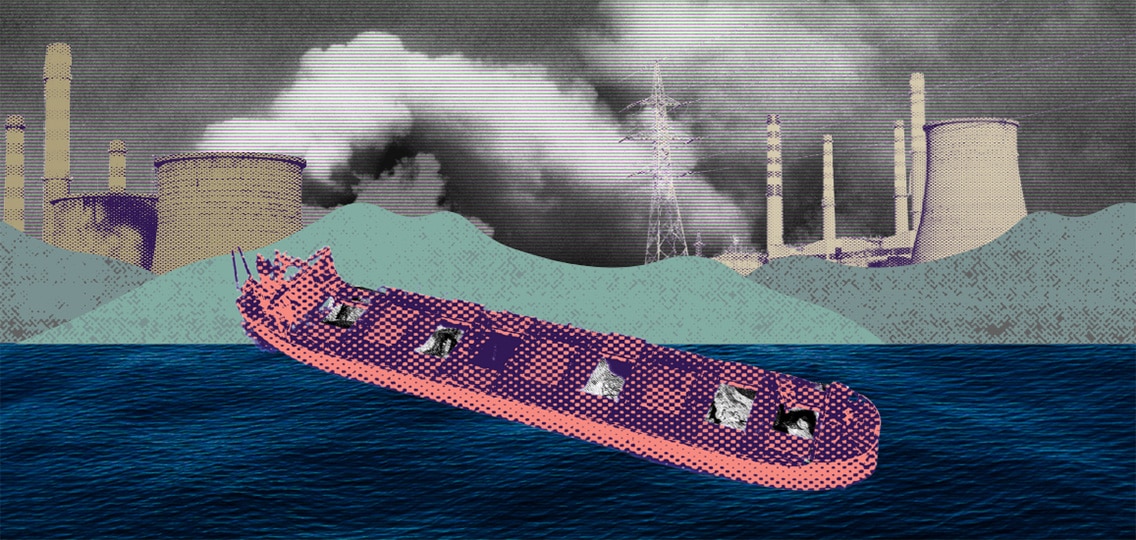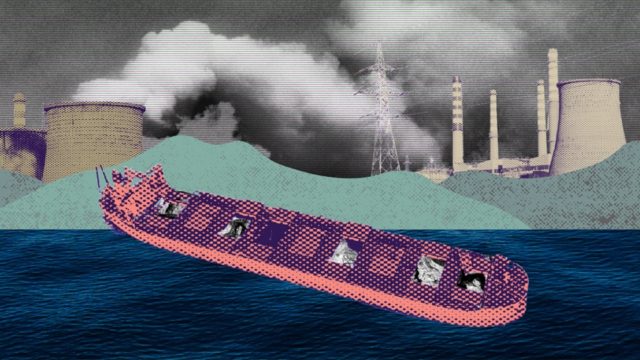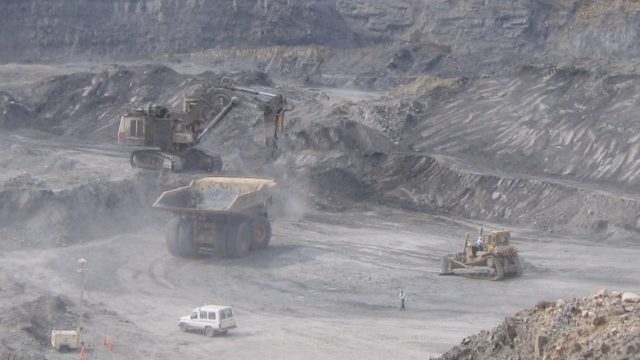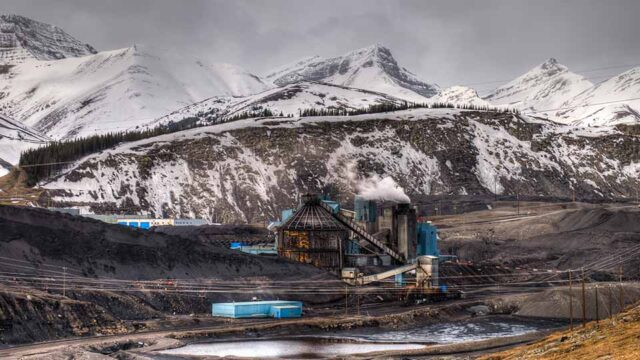Thermal coal is the world dirtiest fossil fuel, a relic of the 19th century that has no place in the modern world.
But this year, thermal coal has seen a rebound that spells disaster for a planet that needs us to reach the greenhouse gas pollution reduction goals set out in the Paris Agreement in order to avoid a total climate catastrophe.
Canada is contributing to the global climate emergency by continuing to export millions of tonnes of coal through its ports each year to be burnt abroad.
As the world experiences an energy crisis, war in Ukraine and a rising cost of living, countries around the world have begun to resort to this harmful energy source hoping that it will provide temporary relief from the volatility inherent to relying on fossil fuels.
Germany and other European countries are reopening coal-fired power plants that had been decommissioned.¹ At the same time, coal producing countries are feeding a global frenzy for coal at a crucial moment when we need to move away from fossil fuels.
In Canada, coal companies are looking at reopening mines – such as Donkin coal mine in Nova Scotia – in an attempt to cash in on the global demand for coal.²
The world’s addiction to a fuel that is so destructive to our environment and our health seems to be as strong as ever.
Regardless of the state of human affairs, we cannot escape the laws of physics. And the science is telling us that if we don’t significantly decrease our emissions this decade, we’re heading to climate catastrophe.
Times like this call for true leadership. Canada must answer this call and step forward to ban the export of thermal coal as soon as possible.
Why is thermal coal so bad?
Burning thermal coal is one of the most significant drivers of rising carbon pollution that leads to climate change. The International Energy Agency found that this fuel was “the single largest source of global temperature increase” in 2018.³ The same report found that coal-fired electricity accounts for 30 per cent of global carbon dioxide emissions.
According to the United Nations Environment Program, global coal development must decline 11 per cent a year between 2020 and 2030 in order to keep global warning below 1.5 degrees Celsius.⁴
If the world fails to drastically reduce the amount of thermal coal used for energy production, we face a climate disaster. Burning coal abroad will impact the lives of people in Canada as increasing global temperatures puts everyone at risk of wildfires, droughts, and flooding.
Greenhouse gas pollution is not the only major problem with thermal coal. Each year, burning thermal coal is responsible for more than 800,000 premature deaths due to the choking smog it produces when burned.⁵
Air pollution from thermal coal plants has been linked to chronic heart and respiratory disease as well as a range of other health problems. It also contains high levels of mercury, which can cause serious birth defects in unborn babies.⁶
What is Canada doing?
To its credit, Canada has taken a strong stance on the global stage through its involvement in the Powering Past Coal Alliance. Among the policy positions that the federal government has committed to is a ban on any new thermal coal mining and an end to burning thermal coal for power in Canada.
Canada’s continued role as an exporter of U.S. and Canadian thermal coal undermines our ability to be a climate leader and to build a brighter future.
According to numbers released recently by the Port of Vancouver, over 15 million tonnes of thermal coal passed through the port in 2021, a figure that shatters previous records and constitutes an increase of 55 per cent over the previous year’s total.
During the last federal election, the federal government committed to a ban on thermal coal exports by 2030 and recommitted to this promise at COP26.
But the world needs faster, stronger action from the federal government. Canada cannot continue to export millions of tonnes of thermal coal through its ports for the rest of the decade if we are serious about climate change.
That is why Ecojustice is calling on the federal government to completely ban thermal coal exports by 2023.
What can you do to help?
In a time of war and the rising cost of living, the fossil fuel industry is trying hard to push for greater dependence on coal, oil, and gas.
But we’ve seen the dire warnings from the Intergovernmental Panel on Climate Change that if governments fail to get a grip on global emissions, then we face a total climate breakdown.
There is no reason to depend on thermal coal when there is an abundance of cheap, clean renewable energy sources.⁷
You can join the call to build a safer, more sustainable world by asking the Minister of Environment and Climate Change and key members of cabinet to ban thermal coal exports by 2023. Take action today!
References:
¹ Russia’s War Is Turbocharging the World’s Addiction to Coal – Bloomberg
² Owner of the Donkin coal mine is making plans to reopen – CBC
³ Global Energy & CO2 Status Report 2019 – International Energy Agency
⁴ World’s governments must wind down fossil fuel production by 6% per year to limit catastrophic warming – United Nations Environment Program
⁵ Coal phase-out: the Powering Past Coal Alliance – Government of Canada
⁶ A vote against thermal coal exports is a vote for climate – National Observer
⁷ Three Myths About Renewable Energy and the Grid, Debunked – Yale Environment






